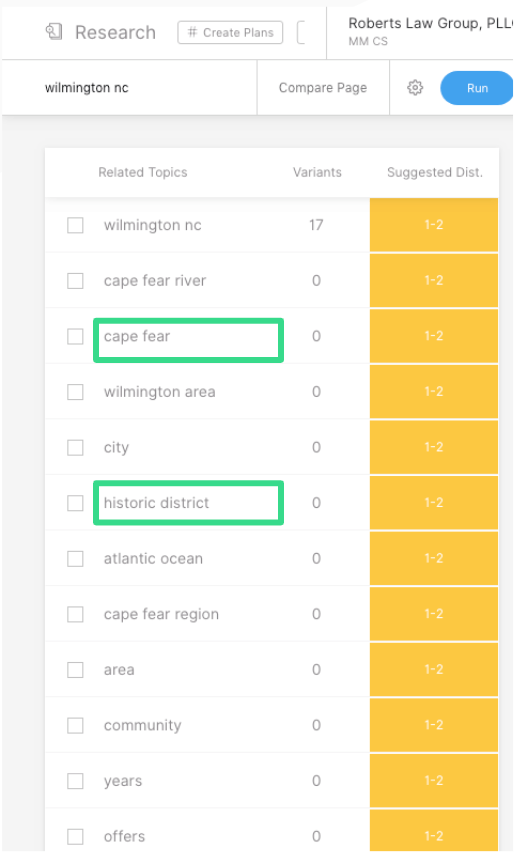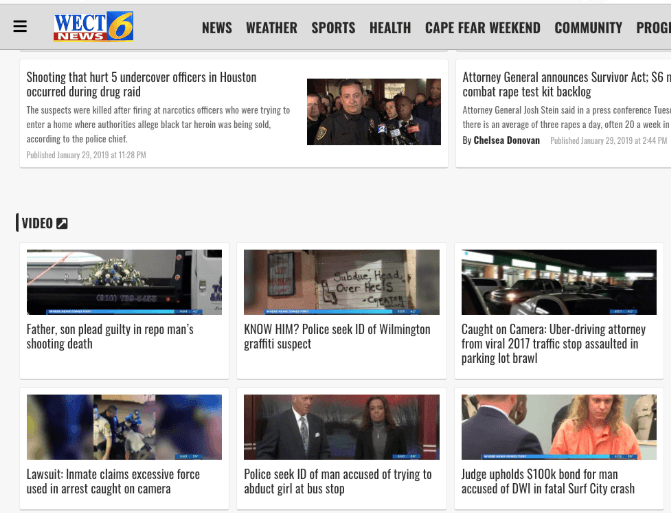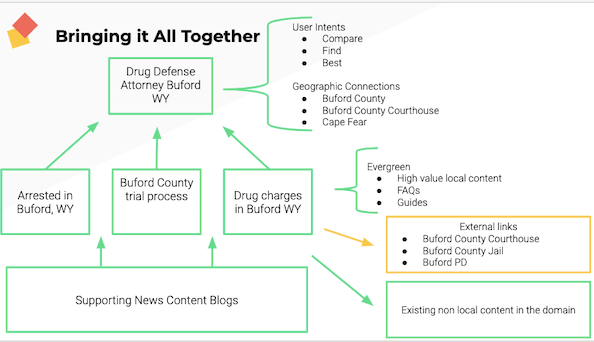How to Create A Successful Local Content Strategy [With Examples]
Let’s talk about local content strategy. But instead of giving you a list of tips, we’ll look at a real plan put together for a law firm operating at a local level. To be fair, I’ve changed the names to protect the innocent. However, this plan can work for local websites anywhere. And these principles can be applied to any sector, not just the legal industry.
In this post, we look at:
- Local search engine optimization at a high level
- Landing page creation
- Creating evergreen content
- The role of news content and locally trending topics
Local SEO at a High Level
Local SEO is similar to conventional SEO, with a small twist. Content plays a critical role in local SEO, just as it does in traditional SEO. The key is that there needs to be a local connection.
Your target audience consists of those residing within the local area. Your content likewise must appeal to those within your local community.
When talking about content, I’m referring to landing pages, evergreen content, and news. By itself, it’s not enough. To create the all-important connection to the locality, you need locally relevant entities, local semantic relationships, and proper linking.
The objective is not to simply match content to locally based keywords. Instead, it aims to align content with the user intents, topics, and semantic relationships that Google associates with local SERPs.
Landing Pages
For example, a law office in Buford, Wyoming, might have several pillar pages, such as:
- Office
- Criminal defense attorney
- DUI attorney
- Sex offense attorney
Okay, maybe not. Because Buford Wyoming is the smallest town in America with a population of 1, he only business is a trading post and not a law firm. But you get the idea.
With traditional SEO, you would optimize those pillar pieces for their given topics and call it a day. But local marketing requires more. You need to establish a local connection between your community and these pages. The type of content can include:
- Locally-based statistics
- Unique aspects about a kind of crime in the area
- Landmarks and locations
Use the MarketMuse Research application to uncover known user intent and keyword variants. Optimize for your target, making sure it’s no too optimized. The “suggested distribution” (Suggested Dist.) provides guidelines regarding the frequency of usage for terms related to a given topic.

The next step is to orient the content to create locally relevant connections. Use the MarketMuse Research application once again to determine relevant local topics.

In addition to creating topically-rich content with locally relevant connections, it’s important to link both internally and externally to value-added local content.
Evergreen Content
Evergreen content is a vital part of an effective local content strategy. Content such as this needs infrequent updating as it retains its relevance months or years after creation, unlike news-type articles.
For example, a locally based law office’s evergreen content may consist of:
- Law-related FAQs.
- Important differences or nuances to the law in the area.
- Local guides for DUI arrest, criminal arrest, bail, etc.
To create a local connection, link to appropriate pillar content. Link OUT to relevant local people or places that you wouldn’t create content around.
News Content
Local news stories are a great way to add new content to the domain. It allows you to expand topical authority in a locally oriented way. Plus, it offers additional opportunities to link to new locations, thereby expanding local SEO connections.
Local news typically has quite a bit on criminal activity with many law-related headlines.

Creating blog posts that provide commentary on each case is an easy driver of good quality content. Plus, it helps build authority around local search.
Creating an Effective Local Content Strategy
Now is the time to bring this all together. Although it’s not a complete local content marketing strategy, the diagram below provides an overview of how a plan could work.

In this example, we’re creating content around the topic, “drug defense attorney Buford WY.” However, many user intents need to be satisfied, including:
- Compare
- Find
- Best
Plus, we’ll need to establish geographical connections by mentioning relevant entities such as Buford County, Buford County Courthouse, Cape Fear, and others.
We’ll also need to create pages supporting the focus topic “drug defense attorney Buford WY.” those pages could include topics such as:
- Arrested in Buford, WY
- Buford County trial process
- Drug charges in Buford WY
These pages will contain external links to geographically and topically relevant sites such as:
- Buford County Courthouse
- Buford County Jail
- Buford PD
Beneath that, we’ll create supporting news content and blog entries. Our content creation efforts also need to address evergreen material in the form of high-value local events and content, FAQs, and guides. Assuming this is an existing site, we must account for our existing non-local content residing in the domain.
We still need to flesh out the content plan, create some content briefs, get the content created and published. But we’re on our way to getting traction with our locally-focused content marketing campaign.
What you should do now
When you’re ready… here are 3 ways we can help you publish better content, faster:
- Book time with MarketMuse Schedule a live demo with one of our strategists to see how MarketMuse can help your team reach their content goals.
- If you’d like to learn how to create better content faster, visit our blog. It’s full of resources to help scale content.
- If you know another marketer who’d enjoy reading this page, share it with them via email, LinkedIn, Twitter, or Facebook.
A Senior Content Strategist at MarketMuse, David has a passion for business and anything that lets me work with a team to find creative solutions to a problem. An entrepreneur at heart and a marketer by trade, his experience ranges from executing and managing complex content marketing strategies to designing go-to market strategies and product launches. Follow him on LinkedIn.